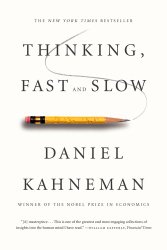Understanding Humans: Why Continuous Sliders?
subscribe
Sliders & Illusions
Imagine your last vacation. Take a moment to reflect.

How enjoyable was it?
How was your last hotel?
We, humans, find it much easier to move a continuous slider to reflect what we feel.
Now rate your hotel with a discrete slider:
You might've felt a bit frustrated by the fact you can't fully describe your feeling. That's how I usually feel.
Anyhow, that's called intensity matching. Humans are pretty good in moving from one scale (their feeling, for example) to a different, arbitrary scale (like a slider).
Moving away from a slider, I could have just written it in words, and ask you to rate your hotel:
It's still a discrete scale, but now it's even harder. The choices seem over simplified.
That's why I say - give us a continuous scale, humans are pretty good in that, don't worry about us, we'll manage. What we don't want is a scale with 10 discrete phrases to read.
Substitution
There is (at least) one flaw in the process of projecting what we feel to a slider. Sometimes the question is hard. For example, an hotel can have a really good service, but small rooms with no air conditioner. That's when the process of substitution takes the reins. We might replace the original question with one which is much easier; for example, 'how good was the service?'. Or maybe the other way around - 'how comfortable were the rooms?' - Because it's a much easier answer, we can easily project it to a slider.
What can we do? In his book, Thinking, Fast and Slow, Kahneman gives us a tool to tackle this issue.
The tool is simple - break the question to sub questions, such as:
- How good was the service?
- How comfortable were the rooms?
- How close the hotel was to the center?
Now, answer them all using "a slider". Then, you can either average the answers (you may assign different weights for each question, or use a complicated formula), or, surprisingly, just answer the original answer after you answered all the sub-questions. It seems as if holding the sub-questions answers in your mind will help you evaluate the original answer objectively.
Sometimes, people will take advantage of the substitution + intensity matching. Usually you see it in advertisements that try to substitute the question - 'Do I want to buy this product?' with 'How cool is this product?', 'How fun is it going to be?' or even 'How beautiful is this presenter?'.
A survey of German students mentioned in Thinking, Fast and Slow, had two groups of students.
The first group was asked:
- How happy are you these days?
- How many dates did you have last month?
The second group was asked the same questions, but in a reverse order:
- How many dates did you have last month?
- How happy are you these days?
The first group experienced no substitution, as there was no correlation between the two answers.
The other group experienced substitution (really high correlation between the answers). It's amazing. Just think about the implications.
Imperfection Is King
Just to chill our negative feelings about the human race, I think It's good to remember that our imperfection is what makes us amazing. A computer is perfect, in the sense that it does not tolerate errors - it does what it is instructed to do. We are not computers. We were 'designed' (by evolution) to make mistakes, to be imperfect (to survive).
Like every coin, there are two sides here, and you cannot separate them. What can sometimes make us amazing (substitution, intensity matching have many great aspects), sometimes make us fall. It's good to be the observer of these falls if we want to go learn something from them and "progress" along our imaginary slider.

